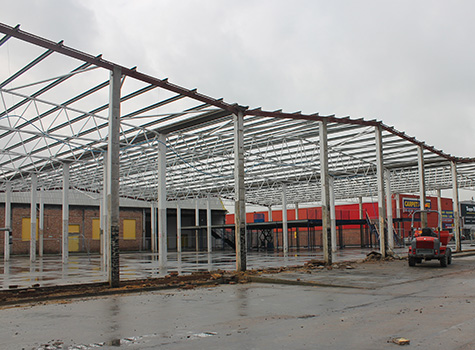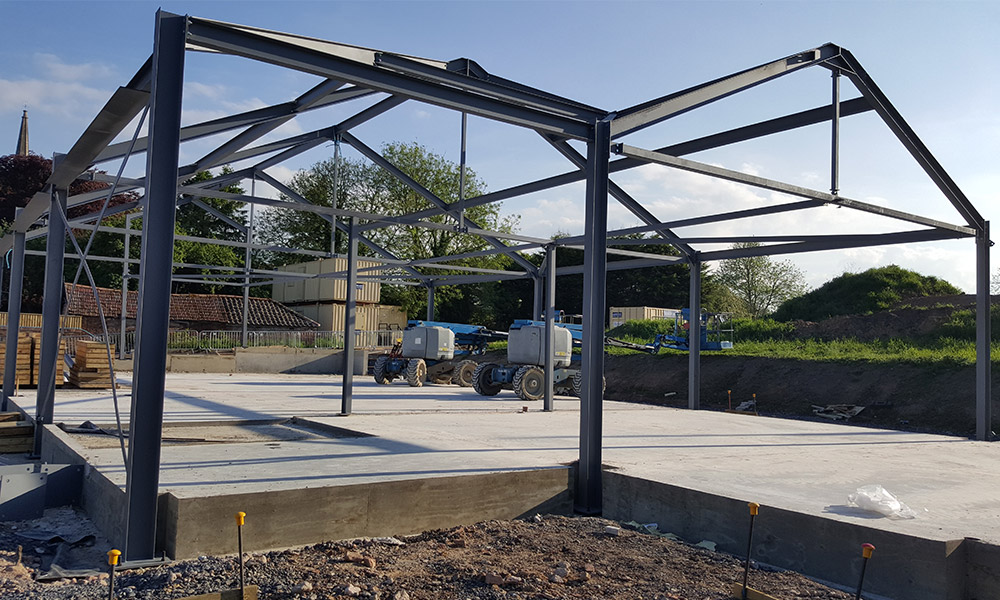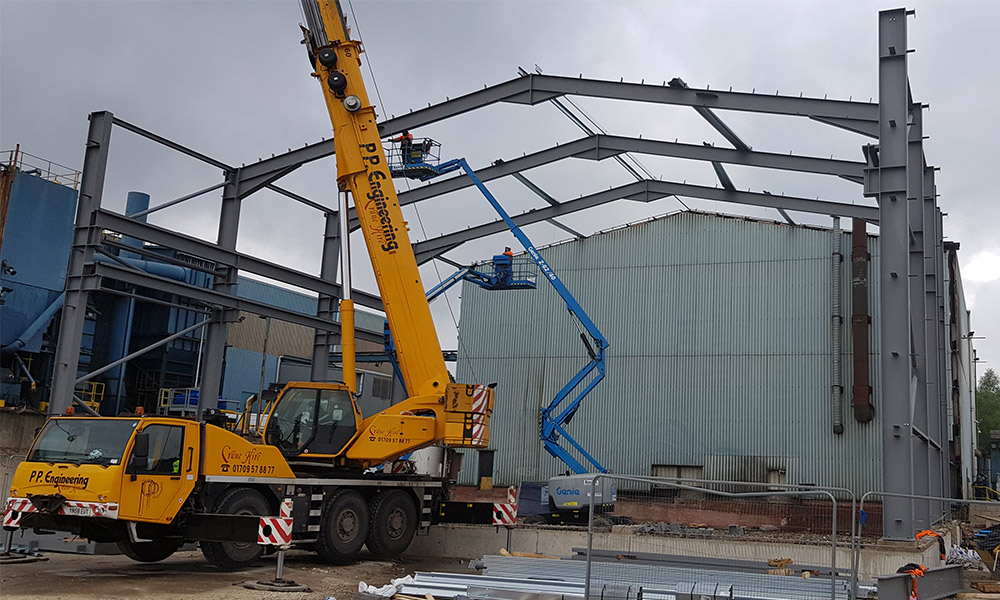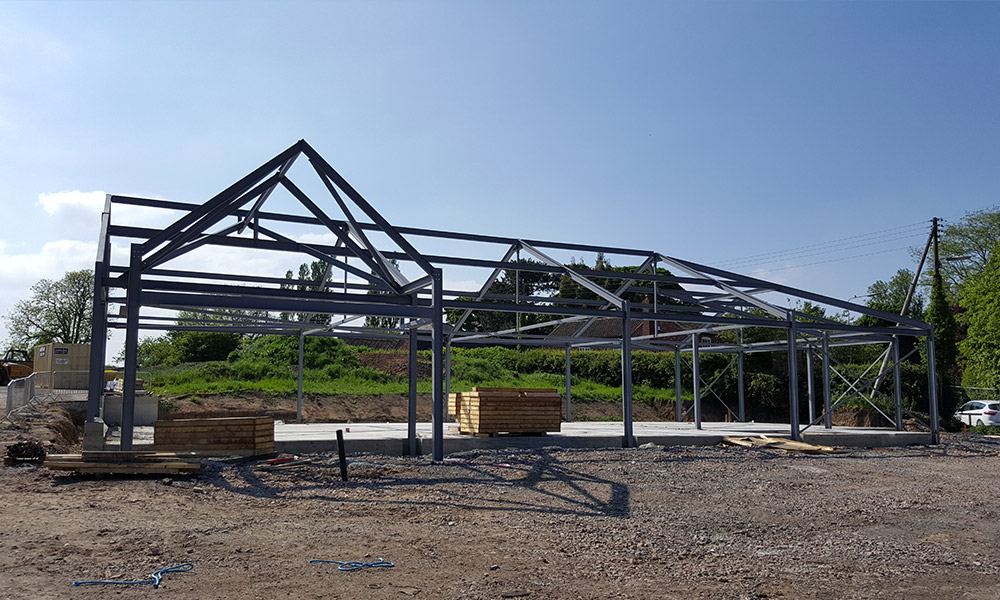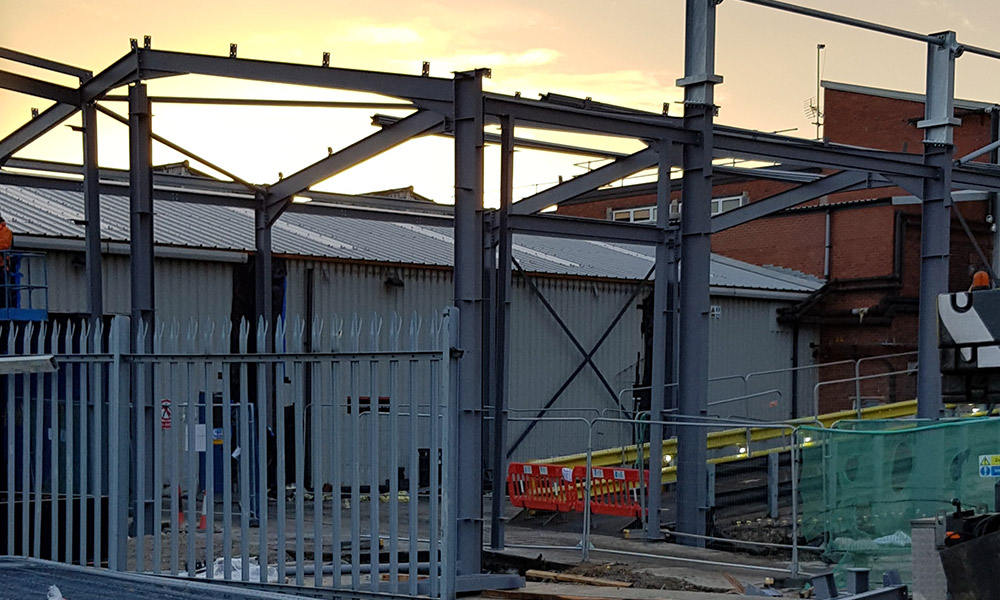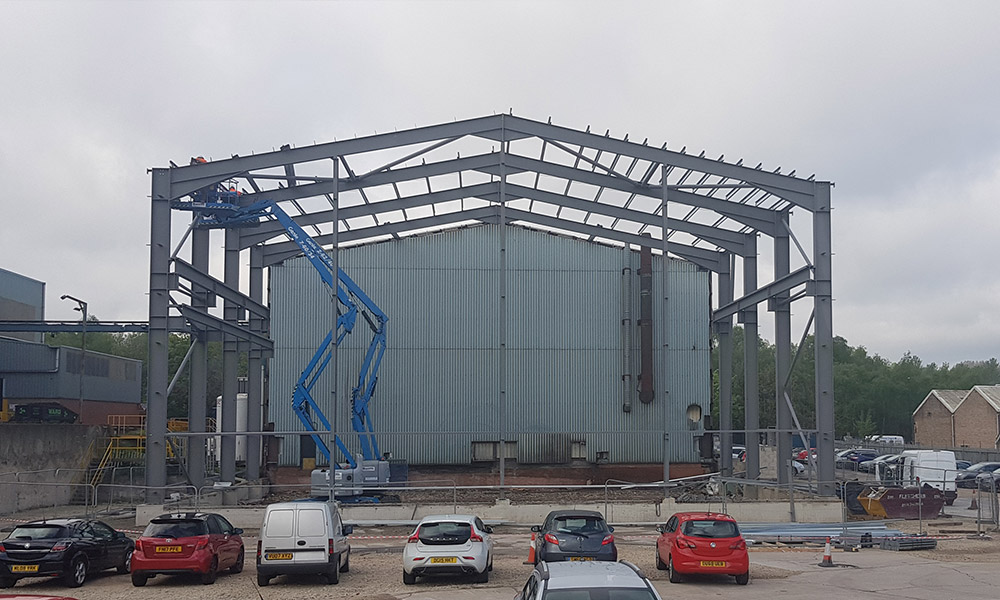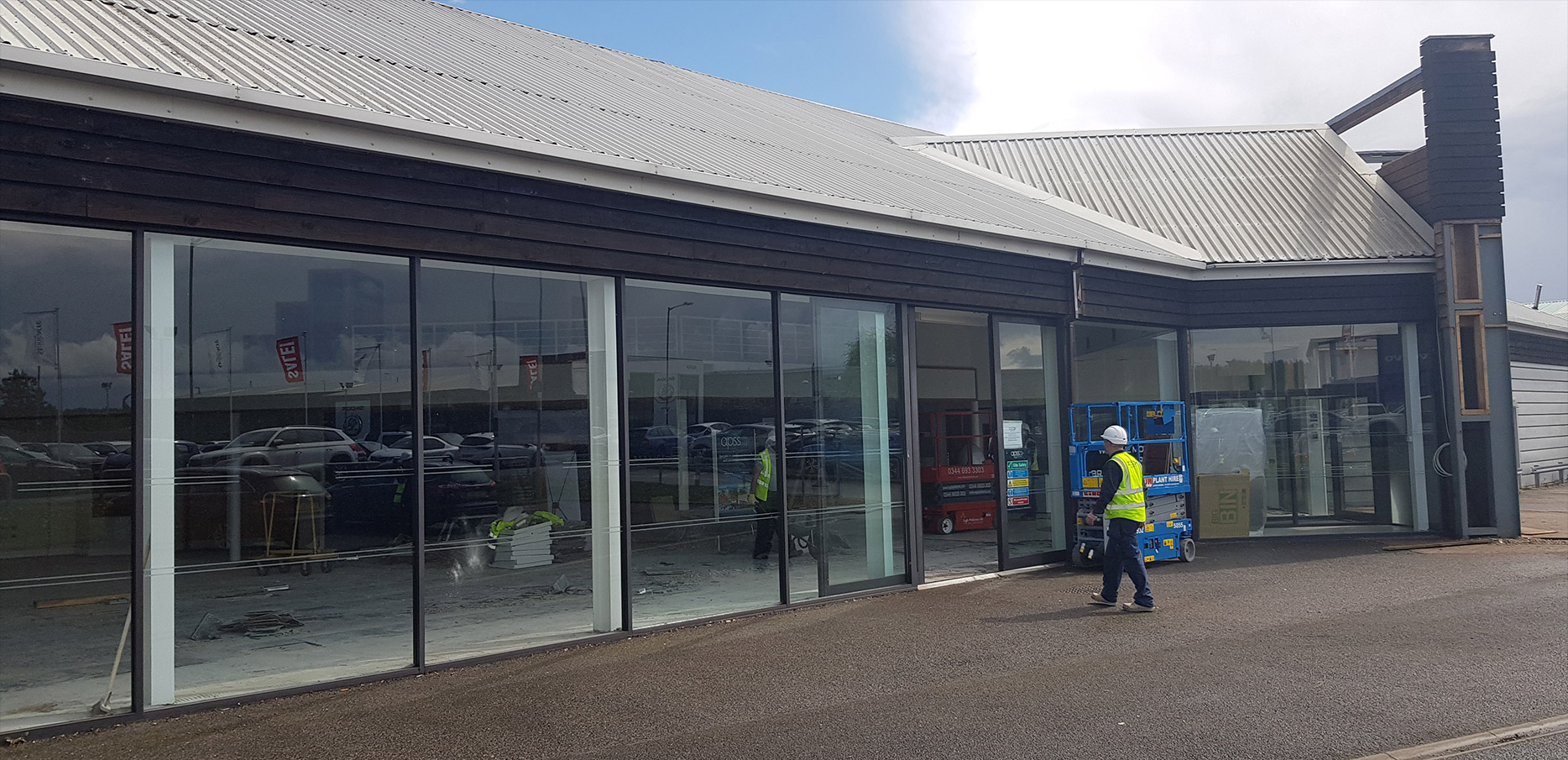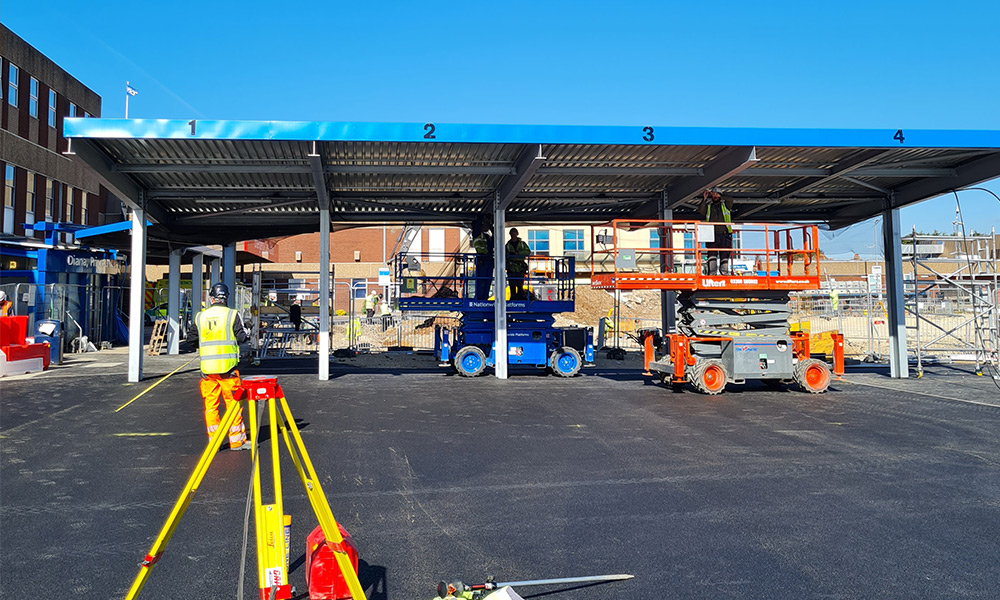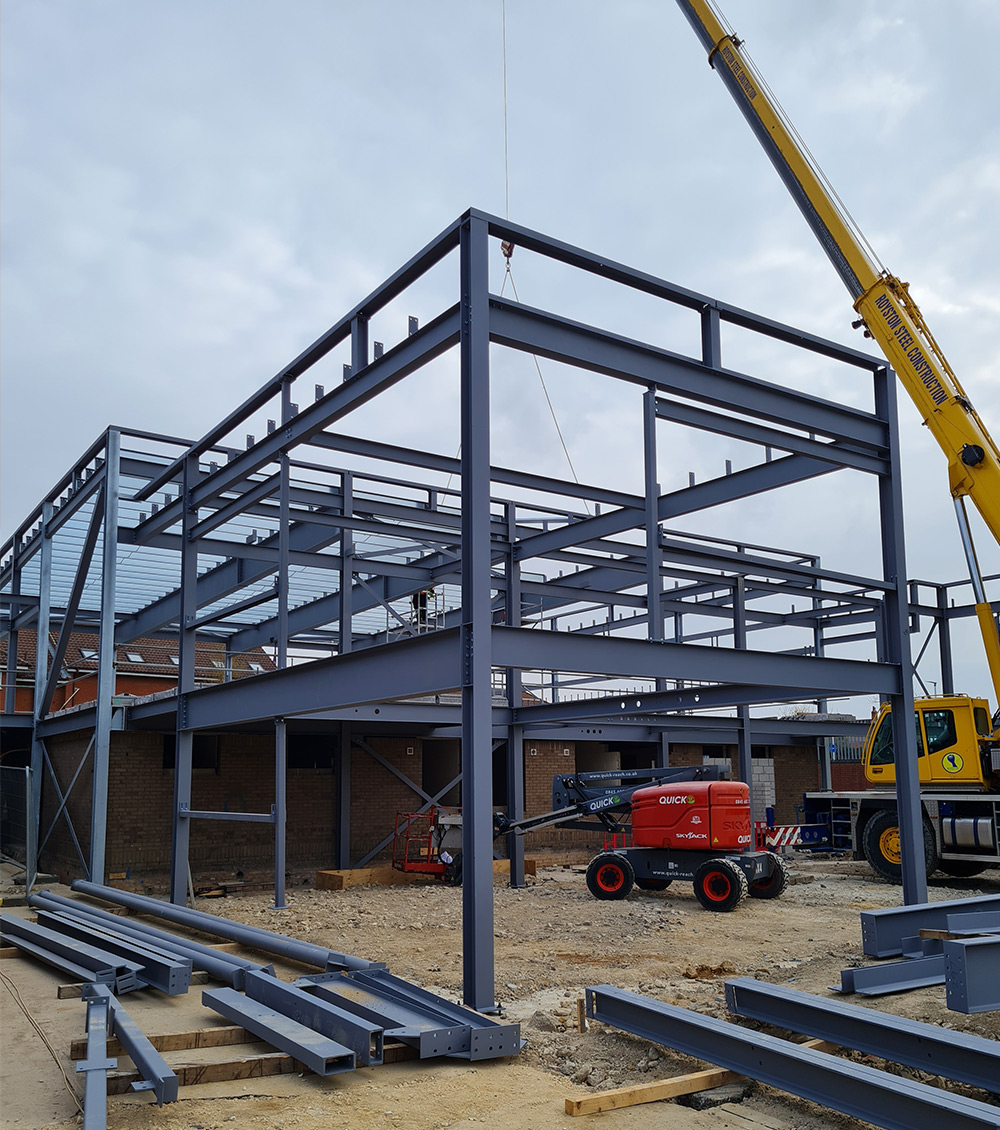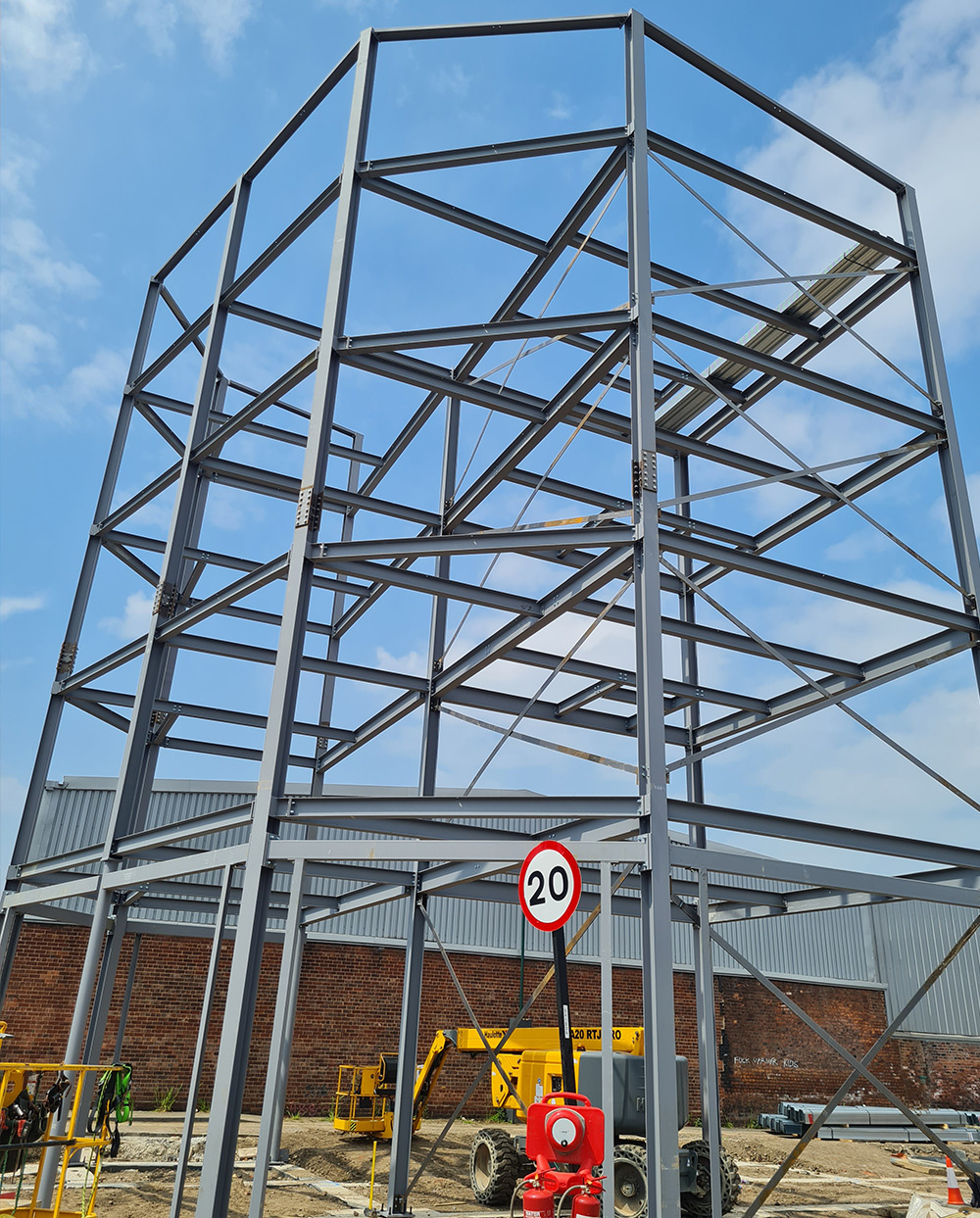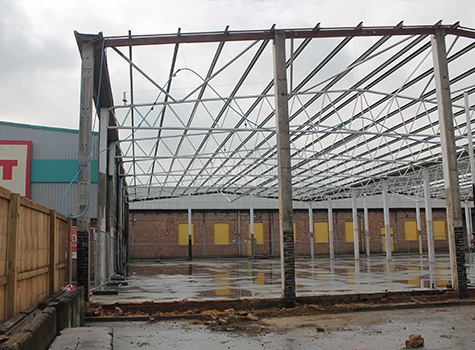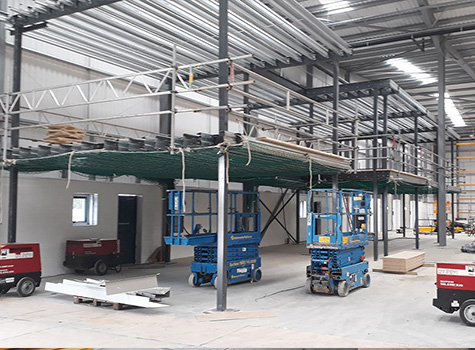STRUCTURAL STEELWORK, STEEL FRAME BUILDINGS & FABRICATION
Steelgram Fabrications specialise in major structural steel fabrication and installation projects of all sizes, with a highly skilled team to take your project from design, to supply, manufacture and installation.
With full UKCA accreditations and over 50 years of experience, you know your project is in safe hands.
We can provide a wide range of portal frame buildings, which you can find more information on here.
Contact us for a quote today.

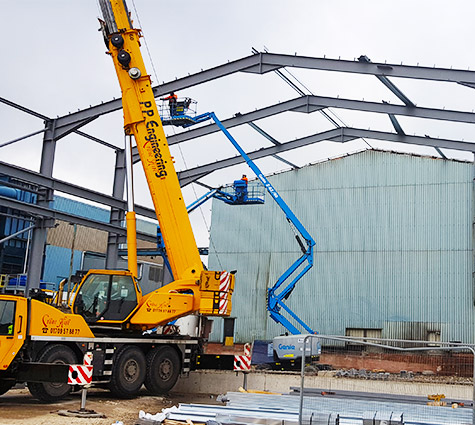
TRUSTED BY

INDUSTRY SECTORS
What is Structural Steelwork?
Structural steel and building construction is the process of manufacturing the components and constructing buildings using structural steel parts such as elongated steel beams.
They can be used in steel frame building erection, warehousing, factories, showrooms, sports grounds, and other situations.
We have years of experience offering our clients structural steelwork services from the design stage right through to installation and completion, helping to manage your project and ensure it all goes ahead as scheduled.
What is a Structural Steel Fabricator?
A structural steel fabricator cuts, shapes, and assembles steel components for construction projects. Fabricators use welding, machining, and assembly techniques to create beams, columns, and frameworks for buildings, bridges, and industrial structures. They follow blueprints and specifications to ensure precise and durable steel structures.
Why Are Fabrication Projects Delayed? (And How to Stop It for Good)
You plan everything down to the hour. Materials lined up. Workforce scheduled. Then the steel shows up late. Or worse – it’s missing key parts, the specs are off, or the welds wouldn’t pass a basic inspection. Now your whole job is on hold, costs are racking up, and everyone’s looking at you for answers.
Sound familiar? If you’ve spent even five minutes in UK construction, you know that dodgy steel suppliers are as common as rain on a job site. The British Constructional Steelwork Association (BCSA) has been hammering this point home for years: not all fabricators are created equal.
Some just aren’t equipped for the scale, some quietly outsource work to the lowest bidder, and others will promise anything just to win the job – even if they have zero chance of delivering on time. If you don’t know how to spot the difference, you’ll learn the hard way. (And the hard way? That means project delays, costly rework, and a whole lot of stress.)
So how do you separate the ones who actually deliver from the ones who just talk a good game?
The One-Time Check That Saves You Months of Headaches
Choosing the right fabricator isn’t about picking the cheapest quote – it’s about finding a team that can actually pull off what you need, on time, and to spec.
The wrong choice can tank your entire build schedule faster than a delayed Crossrail project.
The right choice? That’s the difference between smooth execution and scrambling to fix last-minute disasters – that’s why companies trust Steelgram Fabrications.
1. Do They Have Experience With Projects Like Yours? (Not Just in Theory, But in Practice)
Plenty of companies say they specialize in “commercial and industrial steelwork.” That doesn’t mean they’ve ever handled a 2,000-tonne frame for a logistics park with a six-week turnaround.
How do you check if they’re legit?
- Look at their past projects. And not just the shiny ones on their website. Ask for specifics:
- “Have you done a multi-storey steel frame with ±2mm bolt-hole accuracy?”
- “What’s the largest single structure you’ve delivered?”
- “Ever had to splice a 20m beam in a site-restricted area?”
- Ask about their biggest screw-ups. Every experienced fabricator has war stories. Did they solve the problem or leave the contractor hanging?
- Check their production capacity. If they can only push out 100 tonnes a week, but your job needs 150 tonnes per week to stay on schedule, that’s a problem. (Think about it: could Wembley Stadium have been built if the steel supplier could only handle the demands of a Tesco superstore? Not likely.)
Pro move: Visit a completed project. A quick chat with the site team will tell you whether the fabricator delivered smoothly – or if they caused a world of pain.
2. Certifications: More Than Just a Sticker on the Door
Everyone brags about having CE marking and ISO 9001. But just because a company technically has the right paperwork doesn’t mean they actually follow best practices.
What do you need to check?
- BS EN 1090 Execution Class – Not all steel is fabricated to the same level.
- Execution Class 2: Fine for standard buildings.
- Execution Class 3 or 4:If your project involves dynamic loads (bridges, stadiums) or extreme weather exposure, Class 3 or 4 is a must.
- ISO 9001 Quality Control – Great, they have a certificate. But…
- Do they actually track every single steel batch for traceability?
- Are all welds tested, or just a sample?
- Do they use non-destructive testing (NDT) on critical joints?
Red flag alert: Some firms quietly subcontract work overseas, where standards aren’t as strict. Ask where the welding and fabrication physically happen.
The Difference Between a Fast Fabricator and an Unreliable One
Everyone says they “deliver on time.” So why do so many orders turn up late? Because “fast” and “reliable” are not the same thing.
3. Production Speed: Can They Actually Handle the Volume?
A lot of places say they can meet tight deadlines. But can they back it up?
- Check their equipment. Are they still using manual cutting torches, or do they have CNC plasma or laser cutters with ±0.5mm accuracy?
- What’s their max daily throughput? If your project needs 80 tonnes per day, but their historical peak is only 50 tonnes per day, delays are inevitable.
- Do they have bottlenecks? A 5-axis CNC beam drill line can process 40 holes per minute, but manual mag drilling? You’ll be lucky to get 5 holes per minute.
Real-world disaster: A high-rise project in London gets delayed four weeks because the fabricator couldn’t drill 200mm baseplate holes fast enough. The contractor has to source an external drilling firm at the last minute – costing an extra £30,000.
Don’t waste time bending over backwards to fit in with inexperienced contractors, trust Steelgram today for a bespoke project with precision engineering for all metal components, welding, and bending services.

